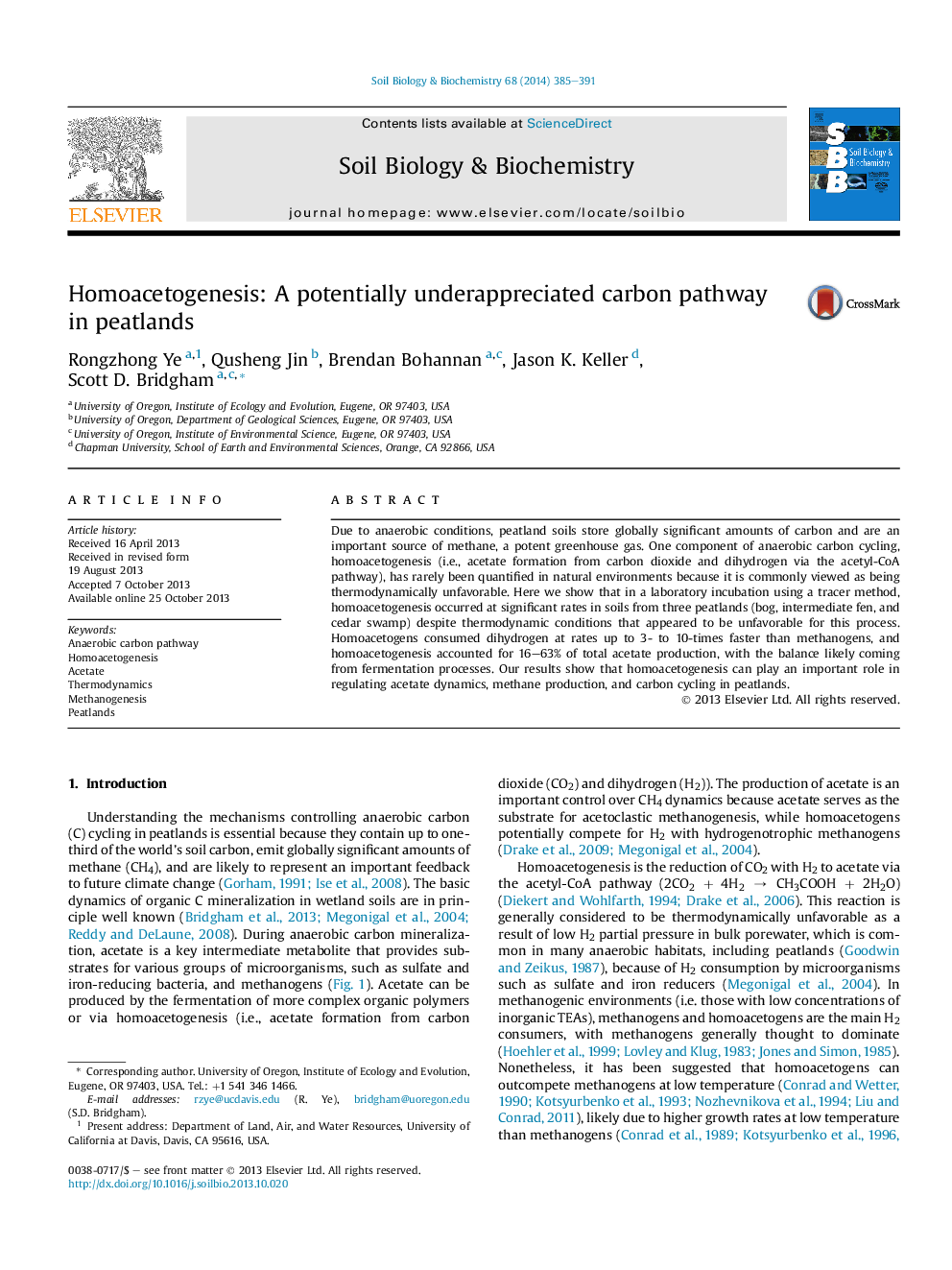| Article ID | Journal | Published Year | Pages | File Type |
|---|---|---|---|---|
| 8365175 | Soil Biology and Biochemistry | 2014 | 7 Pages |
Abstract
Due to anaerobic conditions, peatland soils store globally significant amounts of carbon and are an important source of methane, a potent greenhouse gas. One component of anaerobic carbon cycling, homoacetogenesis (i.e., acetate formation from carbon dioxide and dihydrogen via the acetyl-CoA pathway), has rarely been quantified in natural environments because it is commonly viewed as being thermodynamically unfavorable. Here we show that in a laboratory incubation using a tracer method, homoacetogenesis occurred at significant rates in soils from three peatlands (bog, intermediate fen, and cedar swamp) despite thermodynamic conditions that appeared to be unfavorable for this process. Homoacetogens consumed dihydrogen at rates up to 3- to 10-times faster than methanogens, and homoacetogenesis accounted for 16-63% of total acetate production, with the balance likely coming from fermentation processes. Our results show that homoacetogenesis can play an important role in regulating acetate dynamics, methane production, and carbon cycling in peatlands.
Related Topics
Life Sciences
Agricultural and Biological Sciences
Soil Science
Authors
Rongzhong Ye, Qusheng Jin, Brendan Bohannan, Jason K. Keller, Scott D. Bridgham,
